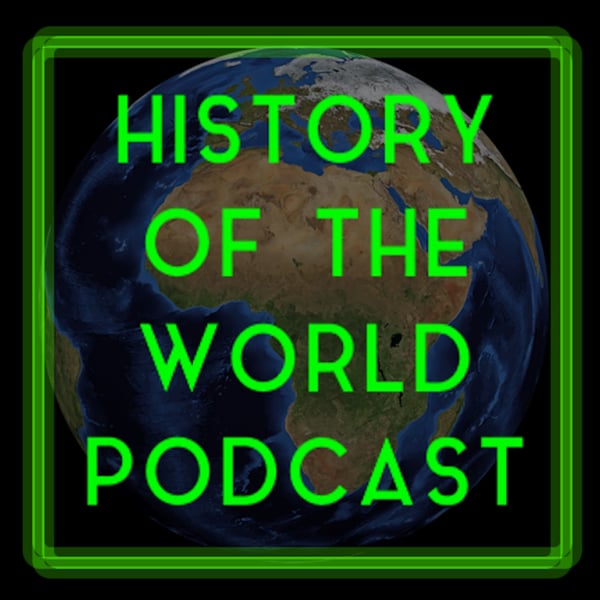Vol 1 Ep 23 - Neolithic Egypt
History of the World podcast
Chris Hasler
4.8 • 971 Ratings
🗓️ 2 December 2018
⏱️ 38 minutes
🧾️ Download transcript
Summary
Transcript
Click on a timestamp to play from that location
| 0:00.0 | This episode is brought to you by Shopify. |
| 0:03.0 | Looking to start a side hustle or become your own boss. |
| 0:05.0 | Do it with Shopify. |
| 0:07.0 | Whether you're selling succulents or stilettoes, |
| 0:09.0 | Shopify has the industry leading tools to help you create, |
| 0:12.0 | control and grow your own business. |
| 0:13.7 | So get serious about selling and get Shopify today. |
| 0:16.7 | Sign up for a one pound per month trial period at shopify.coidek slash special offer |
| 0:21.8 | or lowercase that That's Shopify. |
| 0:23.9 | dot co-DeK slash Special Offer. |
| 0:27.0 | Welcome to the History of the World Podcast. My name is Chris. This is episode 23, pre-Donastic Egypt. Oh, Egypt is a modern country but but in terms of the Neolithic period, we are looking at the |
| 1:07.1 | Noel Valley as the fertile lands of Egypt. |
| 1:11.7 | The desiccation of the Sahara Desert started as a result of the warming of the climate since the last glacial maximum, |
| 1:21.0 | and many humans have migrated to a life around the Nile River by the start of the Neolithic. |
| 1:29.0 | It appears through the archaeological record that agricultural lifestyles developed |
| 1:35.3 | from around 8,000 B.C. onwards and that there was a connection of culture to the fertile crescent as opposed to Egypt developing |
| 1:46.7 | in total independence from the Asian lands of the fertile crescent. |
| 1:50.6 | It does appear also that the peoples of the Nile Valley did not immediately |
| 1:56.8 | become sedentary farmers and that there was a period of nomadic pastoralism, which is basically the controlled herding of wild animals. |
| 2:07.4 | There is also evidence that humans had a very intimate knowledge of wild grasses and knew how to take care of and harvest such plants. |
| 2:18.7 | So although they were not domesticating fauna and flora in a way that we would associate with |
| 2:26.2 | the Neolithic they were certainly carrying out control of these things which |
... |
Please login to see the full transcript.
Disclaimer: The podcast and artwork embedded on this page are from Chris Hasler, and are the property of its owner and not affiliated with or endorsed by Tapesearch.
Generated transcripts are the property of Chris Hasler and are distributed freely under the Fair Use doctrine. Transcripts generated by Tapesearch are not guaranteed to be accurate.
Copyright © Tapesearch 2025.

